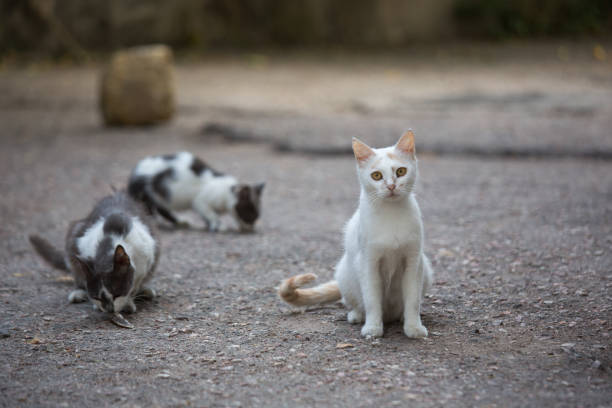Cats, with their independent nature and resourceful instincts, possess a remarkable ability to survive in various environments. While domestic cats have been selectively bred and adapted to living alongside humans, they retain many of their inherent skills that allow them to fend for themselves in the wild. Although domesticated cats are reliant on humans for food, shelter, and care, they still retain survival instincts that enable them to survive without direct human intervention under certain conditions.
Survival Skills of Cats:
Hunting Instincts: Cats are natural hunters. Their keen senses, agility, and stealthy nature allow them to hunt small prey such as rodents, birds, insects, and other creatures. This innate ability to hunt for food is a crucial survival skill that enables cats to sustain themselves in the absence of regular feeding from humans.
Adaptability: Cats are highly adaptable animals. They can adjust to various environments and climates, utilizing their natural instincts to seek out shelter, find water sources, and navigate their surroundings. Their ability to adapt to changing circumstances allows them to survive in a wide range of habitats.
Self-Grooming: Cats are meticulous groomers, meticulously cleaning themselves to maintain hygiene and remove parasites. This self-care behavior contributes to their ability to stay healthy and maintain their physical well-being without relying on human assistance.
Social Structures and Solitary Nature: While cats are social animals to some extent, they also have a solitary nature. They can establish territories and survive independently without forming strong social bonds with other cats. This independence allows them to seek out food and shelter on their own.
Surviving in the Wild:
Feral Cats: When domesticated cats are abandoned or left to fend for themselves in the wild, they may adapt and revert to more feral behaviors. Feral cats are those that have adapted to living without direct human care, often forming colonies in urban, suburban, or rural areas.
Habitat and Resources: Cats living in the wild require access to suitable habitats with adequate food sources, water, shelter, and protection from predators. They may seek out abandoned buildings, forests, fields, or other locations that provide these essential resources.
Challenges and Risks: While cats can survive independently, there are risks and challenges they face in the wild, including exposure to harsh weather conditions, competition for resources, encounters with predators, and potential health issues without regular veterinary care.
While domestic cats are primarily dependent on humans for care and sustenance, they retain natural instincts that enable them to survive independently in the wild under specific conditions. Their hunting abilities, adaptability, and self-sufficiency contribute to their potential to thrive without direct human intervention. However, it’s important to note that surviving without human support poses risks and challenges for cats, and domesticated cats are typically better off under the care of responsible pet owners who provide food, shelter, and veterinary care.



